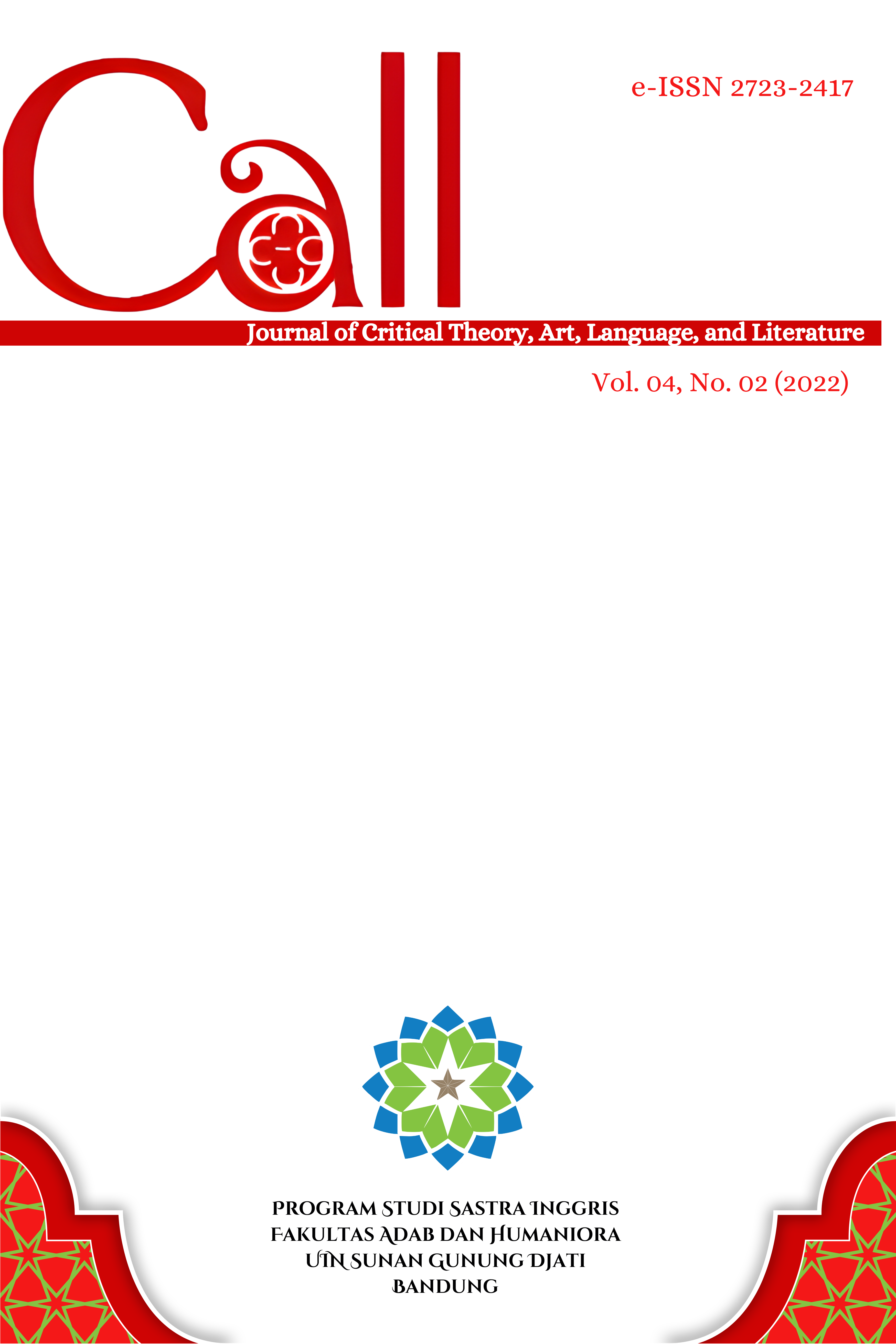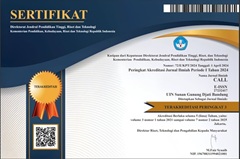MORAL VALUE IN THE PATRIOT MOVIE AND RELATION WITH 18th CENTURY
DOI:
https://doi.org/10.15575/call.v4i2.14547Abstract
Movie is one of the media that has a significant impact on the dissemination of information and the transmission of messages to readers or the general public. This study aimed to discover moral value in "The Patriot" movie. This study aimed to discover how moral principles in the movie compare to those in the 18th century. This study also used a qualitative approach to acquire subjective evaluations by utilizing data sources, data collection techniques, data analysis techniques, and time and location. The primary data source was the movie "The Patriot," while secondary sources included the literature on moral issues, particularly the negative repercussions of the industrial revolution. According to the study, the movie "The Patriot" upholds moral principles such as respect, responsibility, fairness, tolerance, wisdom, helping one another, compassion, cooperation, courage, and self-assurance. The investigation came to the conclusion that there was a connection between the moral principles in the film The Patriot and the social circumstances of 18th-century British society.
Â
Keywords: social condition, moral values, movie
References
Abrams, M.H.1971. The Mirror and The Lamp Romantic Theory and The Critical
Abrams, M.H.1999. A Glossary of Literary Terms. Massachusetts: Heinle & Heinle Thomson Learning.
Afdila, M. 2015. The Moral Values of Social Dialect in Hamlet Movie†Movie. Semarang: English Education Department, Faculty of Tarbiyah and Teacher Training, State Islamic Institute.
Arikunto, S. 1998. Prosedur Penelitian Suatu Pendekatan Praktek. Jakarta:
Bertens K., 2000. Etikaâ€.Gramedia Pustaka Utama. Jakarta.
Earle, W. J. .(1992). Introduction to Philosophy. New York: Mc. Graw Hill.
Ekpiwre, C. A. (2008). Socialization and value re-orientation in the family: implications for effective education reforms in nigeria.
Nigerian Journal of Sociology of Education, 2 (2), 174-180
Endraswara, S. (2005). Metode & Teori Pengajaran Sastra. Yogyakarta: Buana Pustaka.
Engels, F. (1891). The Conditions of the Working Class in England. London: Sonnenschein & Co.
Hadiwardoyo, P. (1990). Moral dan Masalahnya. Yogyakarta: Kanisius.
Hazzlit, H. (1964). The Foundations of Morality. Princeton: D. Van Nonstrand Company Inc.
Hudson, W. H. (1958). An Introduction to the study of Literature. London: George, G. Harrap & Co. Ltd.
Moleong, L. (1999). Metodologi Peneletian Kuantitatif. Bandung: PT Remaja Rosdakarya.
Lickona, T. (2013). Educating for Character, Jakarta: Bumi Aksara.
Oktaviani, A. (2012). Transformasi Makna Simbolik Mihrab pada Novel ke Film dalam Mihrab Cinta Karya Habiburrahman El Shirazy: Kajian Ekranisasi, Semarang.
Downloads
Published
Issue
Section
Citation Check
License
Authors who publish in CALL agree to the following terms:
- Authors retain copyright and grant the journal right of first publication with the work simultaneously licensed under Attribution-ShareAlike 4.0 International (CC BY-SA 4.0) License that allows others to share the work with an acknowledgment of the work's authorship and initial publication in this journal.
- Authors are able to enter into separate, additional contractual arrangements for the non-exclusive distribution of the journal's published version of the work (e.g., post it to an institutional repository or publish it in a book), with an acknowledgment of its initial publication in this journal.
- Authors are permitted and encouraged to post their work online (e.g., in institutional repositories or on their website) prior to and during the submission process, as it can lead to productive exchanges, as well as earlier and greater citation of published work (See The Effect of Open Access).




